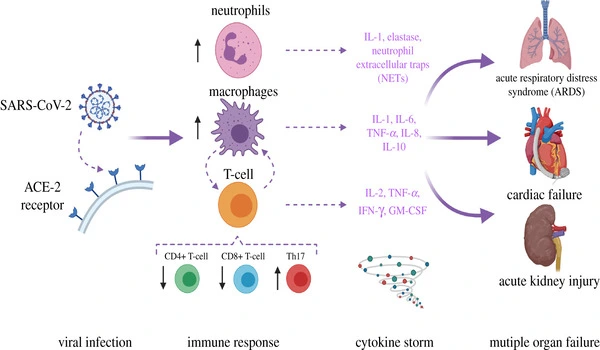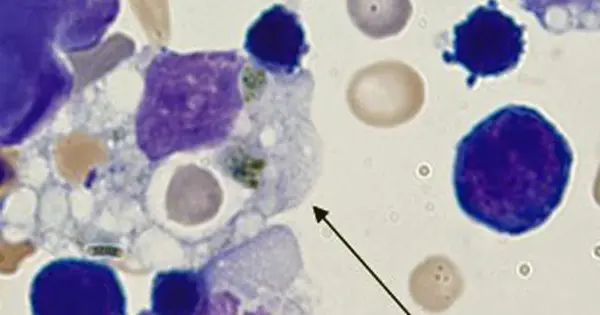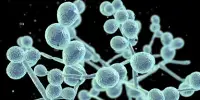Researchers have developed a potential treatment for cytokine release syndrome (CRS), a life-threatening inflammation caused by a major infection or severe burn. A short-acting antibody lowers the inflammatory effects of interleukin-6, a major cytokine in CRS, without the side effects associated with earlier longer-acting medications.
Cytokines are chemical messengers that assist the body in eliminating germs and viruses while also controlling inflammation. Cytokines are carefully balanced by the body to help keep the immune system healthy. However, this balance is disrupted if the immune system overreacts. A significant infection or severe burn can cause a cytokine storm in the body. During the storm, also known as cytokine release syndrome (CRS), the body overproduces cytokines, resulting in life-threatening inflammation.
Interleukin-6 (IL-6) is a key cytokine in the storm because it helps to drive the inflammation that damages the body. IL-6 delivers its message by fastening to IL-6 receptors within cells, which tells the cells to spread inflammation. Because IL-6 is important in CRS, treatments that block the IL-6 signal can relieve inflammation. However, this blocking tends to be long-lasting, which leads to side effects.
Our results suggest that CRS can be treated with an IL-6 receptor antibody that has a short half-life. This can prevent vascular damage and at the same time reduce the side effects associated with blocking IL-6.
Sujin Kang
In a study published in the Proceedings of the National Academy of Sciences (PNAS), researchers from Osaka University have discovered a way to block IL-6 signals while minimizing treatment side effects. The group interrupted the inflammatory signal using an antibody that blocks the IL-6 receptor for only a short time. The brief interruption was long enough to protect the tissues against injury from cytokine storms caused by sepsis or severe burns.
“Our results suggest that CRS can be treated with an IL-6 receptor antibody that has a short half-life,” says the study’s lead author Sujin Kang. “This can prevent vascular damage and at the same time reduce the side effects associated with blocking IL-6.”

Vascular damage happens when an infection or burn causes the cells that line the inner surface of blood vessels to become leaky. The leaking fluid triggers a cytokine storm and can cause a secondary infection. The group also reported a potential mechanism for this damage to cells. When IL-6 binds to its receptor it activates a protein called hypoxia-inducible factor-1α (HIF1α), which amplifies inflammation.
“We found that blocking the IL-6R-HIF1α signal strengthened vascular endothelial cells and improved vessel integrity. This helped to prevent leakage from the vessels and relieved the inflammation caused by CRS,” explains senior author Tadamitsu Kishimoto. “We hope this will help patients suffering from CRS and other inflammatory diseases in the future.”
Other diseases that can cause CRS include sepsis and acute respiratory distress syndrome, COVID-19 infection, and ischemia. People with traumatic injuries and those taking some cancer immunotherapies can also experience a cytokine storm. The findings of this study can hopefully provide an alternative therapeutic approach to patients with these conditions.
















